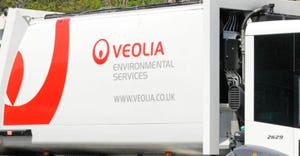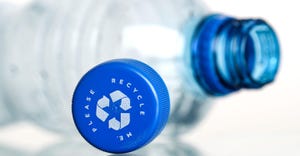Defining Diversion
July 1, 2011
By Bryan Staley, Ph.D., and Jenna Cameron
Today the headlines are chock full of companies or cities that have set or are achieving “zero waste” goals. It’s catchy, smells of political correctness and may garner good PR, but what does “zero waste” actually mean, and how do zero waste efforts relate to diverting discards from landfills?
The term “zero waste,” while attractive, does not appear to have a standard definition that might foster common understanding between policymakers, the solid waste industry and the public. Rather, many definitions exist, seemingly crafted based on the needs and desires of organizations charged with implementing a “zero waste” program.
A review of available information conducted by EREF has identified at least 10 distinct definitions for “zero waste.” Examples include:
a) “Zero waste is the recycling of all materials back into nature or the marketplace in a manner that protects human health and the environment.” – Zero Waste America
b) “Zero waste means designing and managing products and processes to systematically avoid and eliminate the volume and toxicity of waste and materials, conserve and recover all resources, and not burn or bury them.” – Zero Waste International Alliance
c) “Zero Waste is a holistic approach to managing the flow of resources through society. It is about designing products and packaging to minimize waste, creating incentives to encourage clean and sustainable products and enterprises, fostering both producer and consumer responsibility, investing in resource recovery facilities, strengthening local economies, and building community collaboration.” – City of Palo Alto, Calif.
The common threads in these and other examples relate to increasing process efficiency, reducing waste and increasing resource recovery from manufacturing through disposal. Beyond that, the definitions vary widely, and include or exclude source reduction, waste minimization, reducing material sent to waste-to-energy (WTE) or landfill facilities, and incentivizing producer and consumer responsibility.
So why should we care? First, companies and municipalities are defining zero waste plans and policies based on definitions that do not allow adequate comparison. Understanding how you are doing relative to your peers is key to fostering competition and reassuring stakeholders/citizens that their investments/tax dollars are being spent wisely.
Second, and perhaps more importantly, the implementation of a zero waste policy or goal is based on how that policy or goal is defined, which has ramifications for the solid waste industry. If the primary focus of one policy is on recycling, while another focuses on waste minimization, this drastically impacts how “zero waste” is implemented from an operations standpoint. A focus on recycling may compel a solid waste service provider to invest in material recovery facilities and related recyclable collection activities. Additionally, some zero waste definitions may be more or less friendly to end-point technologies such as WTE or landfills.
Another important point is that many zero waste definitions are simply describing landfill diversion methods. This is an important distinction, and appears to be an almost universal misconception. While zero waste initiatives CAN result in less material going to landfills, “zero waste” is not and should not be synonymous with “zero landfill,” since the objectives associated with landfill diversion may have nothing to do with the broader implications of zero waste as it pertains to improving process efficiencies and/or minimizing waste generation in the first place.
Given that such concepts have the potential to redefine how society thinks about its waste, realistic, standardized definitions of “zero waste” and “zero landfill” are essential to fostering practical corporate and public policies while reassuring the industries striving to respond efficiently and profitably to the effects of such policies.
Jenna Cameron, who contributed to this column, is an intern at EREF and is a student majoring in sustainability and communications at Meredith College in Raleigh, N.C.
You May Also Like


